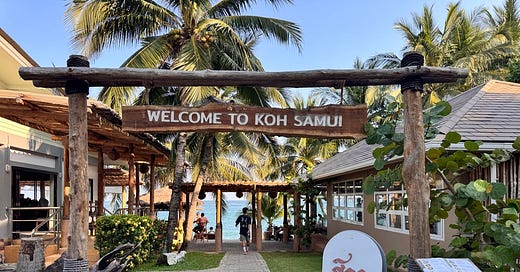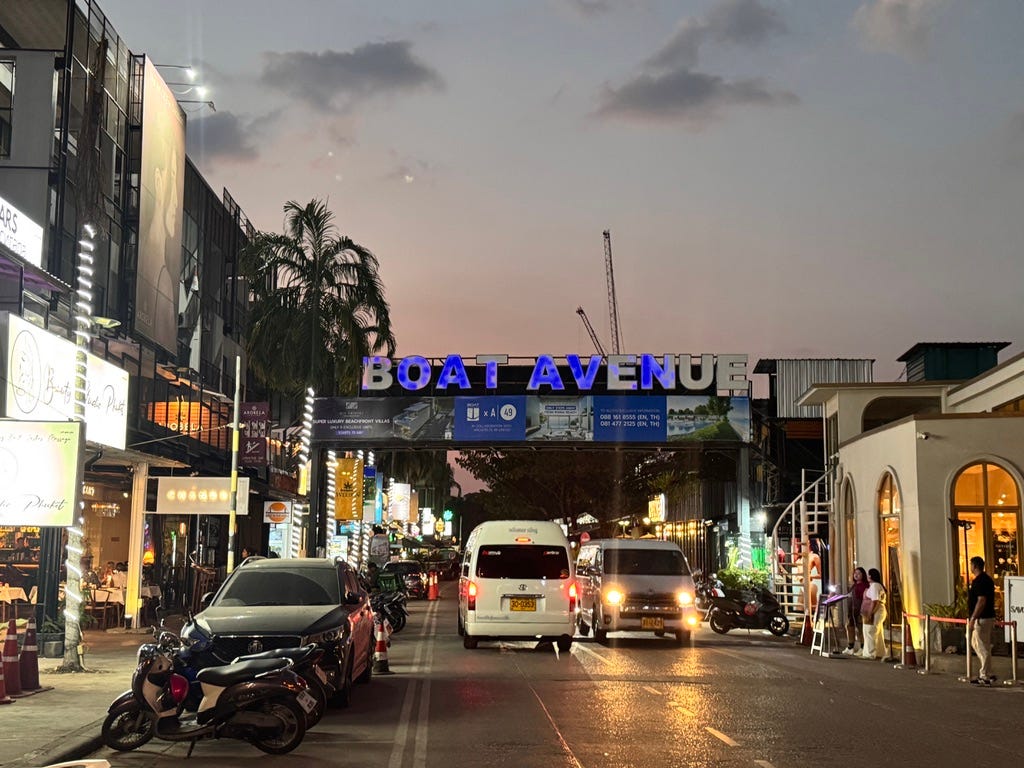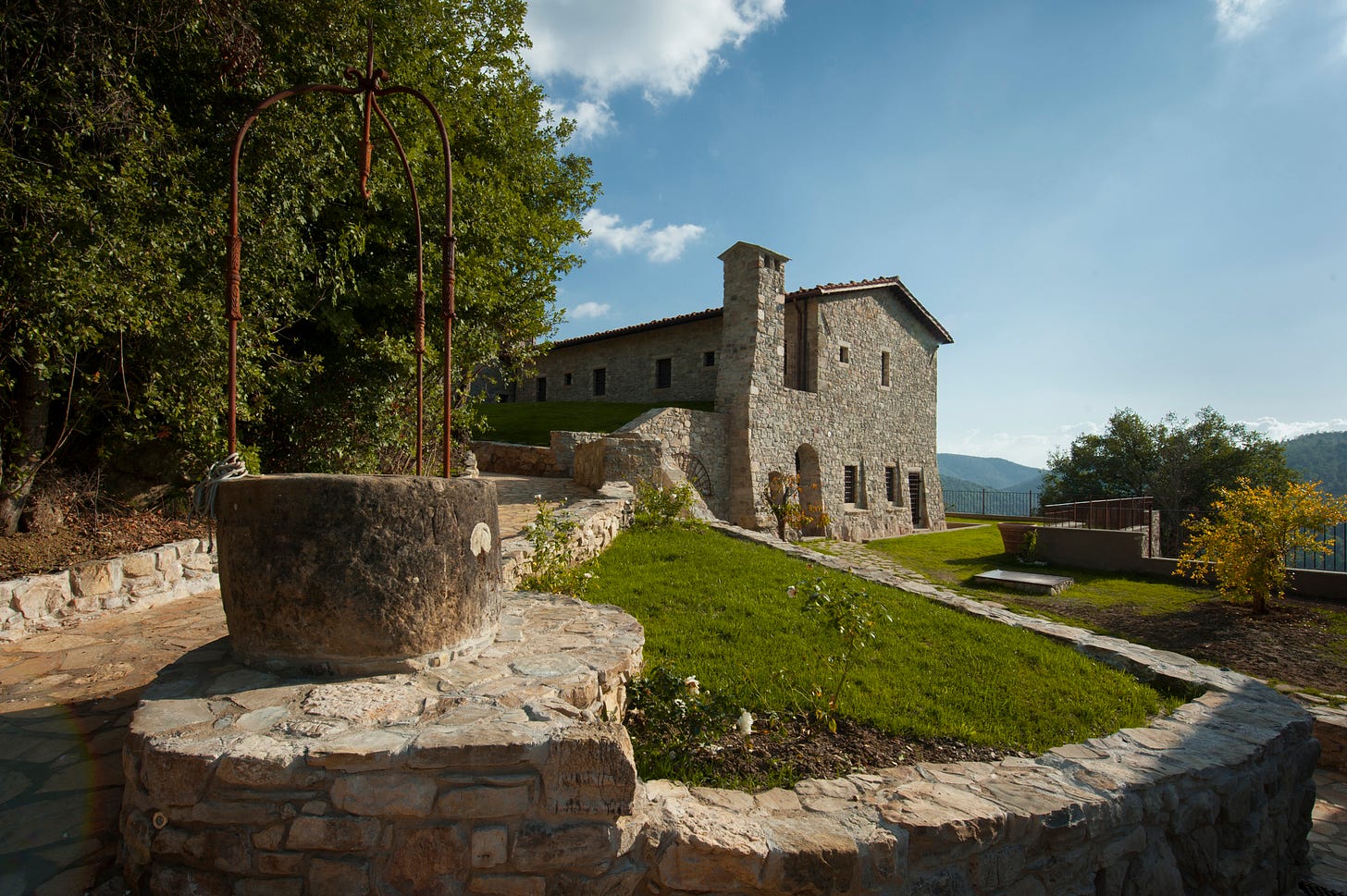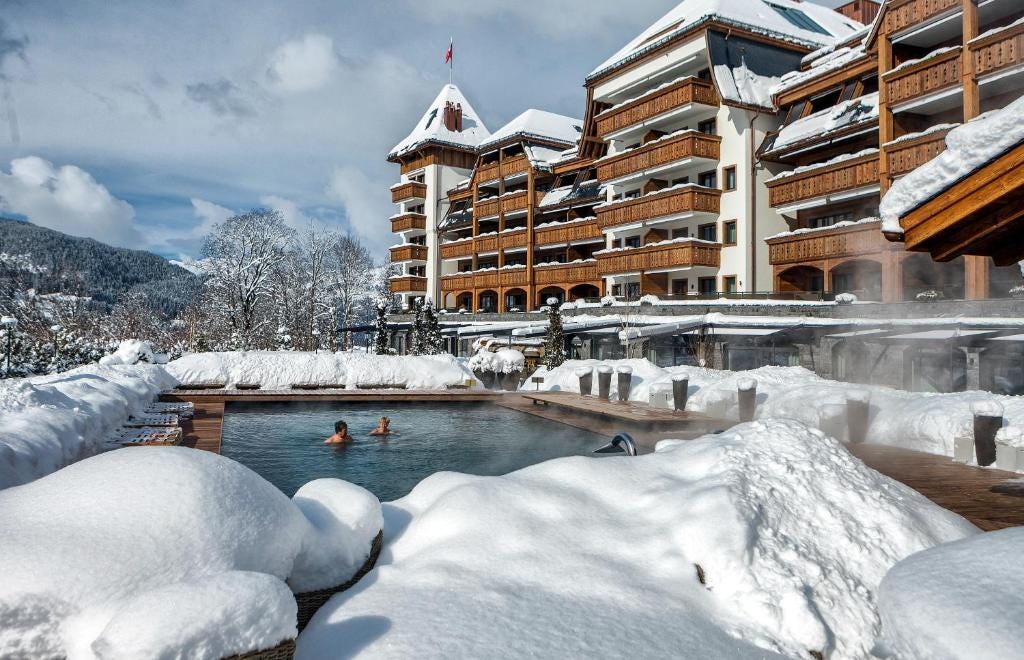From the minute we landed, Bang Tao was sensory overload. I mean that in the best possible way. Bang Tao —a lively stretch in northern Phuket, about 45 minutes south of the airport— like much of Southeast Asia, is a place of pure, unfiltered chaos. Mopeds zooming about like schools of fish, bars blaring music in constant competition with each other, Tuk Tuk’s reviving the career of DJ Sammy one passenger at a time. All the while, the constant “clunk”, “clunk,” “clunk” of construction peppers the background of every conversation while the entire country reinvents itself. It was loud, messy, and relentless. And as a lifelong advocate of chaos and sunshine, preferably at the same time, I, of course, adored the place.
But what I hadn’t realised—what hadn’t even occurred to me until we left—was that in four weeks of living there, I hadn’t once experienced silence. Not once. Every morning, I woke up to the dulcet sounds of engines, street vendors, and overlapping basslines. Every night, I fell asleep to the same soundtrack, albeit the remixed version with more honking and the occasional street brawl. It became normal. Urban white noise, if you will.
Then, last week, as we headed for island life on Koh Samui, I didn’t expect anything radical to change. But the second we arrived at our new digs, up a gigantic hill tucked away in the jungle, something happened. After exchanging pleasantries with the eccentric and very chatty (maybe drunk?) Airbnb owner Stephan and closing the door behind us…silence. Actual, perfect, complete silence. And at that moment, my entire body reacted. The tension I hadn’t even noticed melted away, my shoulders dropped, and I felt a physical, visceral exhale. I hadn’t realised how much I had missed silence. How much my brain and body had been craving it.
In travel, silence has always been there—monasteries, remote cabins, the occasional aggressively expensive yoga retreat—but it’s often used as a byproduct rather than the main event. The luxury industry has spent decades selling excess. More pillows. More pools. More bars. The idea of selling less. Less noise, less stimulation, less of everything would be considered counterintuitive. But as it turns out, silence is pretty lucrative.
The modern traveller is overstimulated. Right now, literally, every surface we look at fights for our attention, and there’s no such thing as being unreachable. It’s exhausting. And, travellers, like everyone else, are fed up. They want peace, and so in response, silent tourism is quietly (pun very much intended) becoming the sought-after experience.
Entire resorts are being built around the idea of auditory stillness. No music, no background chatter, no unnecessary interruptions. Just the sound of the wind, a distant rustle of leaves, and the occasional bird calling out in what you can only assume is a relief that no one is trying to stick his beak on TikTok.
The Eremito is one of the first “Digital Detox” hotels in Italy. A stunning place where guests are encouraged to embrace ‘monastic luxury.’ No Wi-Fi, no TVs, and absolutely no small talk at dinner. Just a dimly lit dining hall where people eat in silence, contemplating their pasta in peace. The Alpina in Gstaad went even further with their silent retreat initiative, offering guests a wristband that indicated that they did not want to interact. Not something I could get on board with personally, my love of a chat far too great, but I see the appeal for sure and I’m positive it would be dream come true for anyone who’s ever been stuck on a group tour with an overenthusiastic travel influencer and never wishes to suffer the same fate again.
Even mainstream hospitality brands are catching on. More hotels are introducing ‘quiet floors’. A frankly genius and well-overdue marketing move that essentially means banning screaming children and stag parties while pretending it’s about wellness. Some are eliminating in-room televisions, replacing them with curated book collections. Saying, go on, we dare you to read something that isn't on a screen.
So why the sudden demand for silence? It’s not about avoiding noise per se—it’s about avoiding modern noise. The wrong kind of noise. Traditional sounds—the crash of waves, the crunch of footsteps on gravel, the occasional dramatic thunderstorm—these, these are just fine, encouraged even. Reminding us that we exist in a world that isn’t made of pixels. But digital noise? The endless ping and buzz of notifications, looping hold music, station announcements you can't quite hear telling you something may or may not be delayed? That’s the noise we want to run away from.
It might seem odd that silence has become aspirational, but it truly has. The ability to retreat to somewhere genuinely quiet suggests a level of privilege. That ability to reject the chaos that most people can’t avoid is a luxury. And in true hospitality fashion, that exclusivity is being monetised.
As it always will, the hospitality industry has found a way to turn silence into an experience worth investing in. Not in a bad way, no sir-ee. They’re not charging extra for what should be a given but they are finally recognising that true quiet is rare and offering it well requires intention.
Because here's the thing. Silence itself isn’t always silent. It has texture. A kind of thickness. And when you’ve spent too long in noise, true silence can feel deafening if you’ve ever stayed somewhere truly remote. No distant sirens, no nothing, you’ll know what I mean. The kind of quiet where your own heartbeat can feel like an intrusion. In that scenario, there’s a fine line between peaceful and unnerving. If you strip everything away, the silence can become oppressive. That’s why silent hotels and retreats aren’t simply removing noise. They’re curating a sense of peace and quiet. Leaning into nature, into the comforting rustle of trees and distant waves, into sounds that feel organic rather than mechanical. The goal isn’t absolute silence. It’s a considered kind of silence.
Designers are deliberately incorporating moments of tranquillity, rethinking layouts to create natural pockets of stillness alongside soundproofed suites and private meeting spaces. Some operators offer wellness retreats where silence is part of the package, with meditation gardens and spa treatments focused on deep rest. Others prefer the digital detox model, which gives guests an easy way to disconnect without the usual guilt. Creating space for visitors to sit and reflect.
When you think about it, that’s what great hospitality has always been. Environments that are removed from the outside world and reality. The greatest hotels are places that allow guests to live in a fantasy, even just for a little while, to finally exhale.
Will this trend last? Probably. Because silence is becoming a necessity. The more technology creeps into our lives, the more we’ll crave places where it can’t reach us. Hotels will start offering ‘no-phone’ zones the way we once had smoking sections, and one day, probably not too far from now, someone will inevitably launch an AI-powered silent retreat, where the all-knowing yet entirely make-believe staff communicate via chatbot so you never have to talk to a person again.








